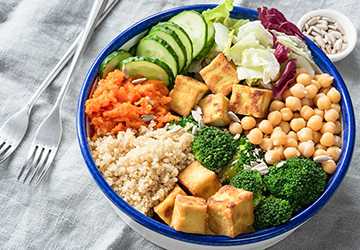tourism
Sunflower seed butter is famous for people seeking a nut-free alternative to traditional spreads like peanut or almond butter. Its rich, creamy texture and nutritious profile make it a favourite for families, individuals with allergies, and those who love a new twist on familiar spreads. Let's dive deeper into what sunflower seed butter is, its health benefits, and how it fits into everyday life.
What Is Sunflower Seed Butter?
Sunflower seed butter is a spread made from roasted sunflower seeds. It has a smooth, creamy texture, much like peanut or almond butter, making it easy to spread on toast or mix into recipes. The flavour is nutty and slightly sweet, although it contains no nuts, making it a safe option for those with nut allergies.
The process starts by grinding sunflower seeds into a paste, with optional additions like oil, salt, sweeteners, and honey or maple syrup to improve the taste. This process results in a versatile spread that can be used in various culinary applications. Many brands offer versions with different consistencies, ranging from thick and hearty to smooth and silky, allowing consumers to choose their preferred texture.
How Is It Different From Other Spreads?
While sunflower seed butter might resemble traditional nut butter, its crucial distinction lies in its source. Unlike peanut or almond butter, which is made from nuts, sunflower seed butter is made from seeds, making it an excellent option for those who need to avoid nuts due to allergies. This makes it particularly attractive to parents seeking school-safe lunchbox alternatives or individuals with specific dietary needs.
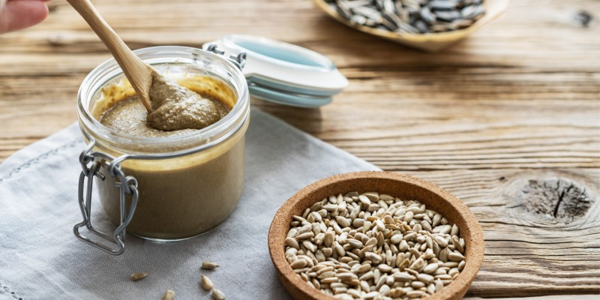
Nutritional Benefits Of Sunflower Seed Butter
Sunflower seed butter isn't just delicious—it's packed with nutritional value. Whether you're looking for protein, healthy fats, or critical vitamins, this spread offers many advantages that make it a worthwhile addition to any diet.
Rich In Healthy Fats
Sunflower seed butter is rich in heart-healthy polyunsaturated and monounsaturated fats, which help reduce bad cholesterol and support cardiovascular health. It also contains omega-6 fatty acids, essential for regulating the body's inflammatory response and maintaining overall cellular function.
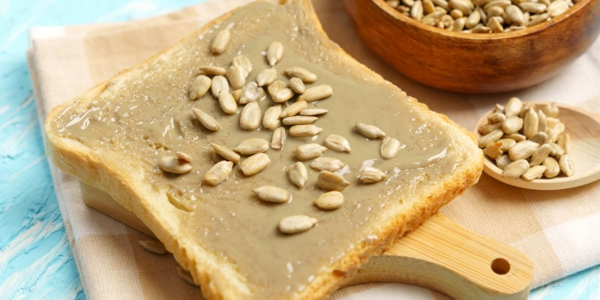
High In Protein
Sunflower seed butter offers 7-8 grams of protein per two-tablespoon serving, making it a plant-based alternative for boosting protein intake. It supports muscle repair, energy production, and overall health. Use it in smoothies, whole-grain bread, or recipes for a nutritious protein boost.
Loaded With Vitamins And Minerals
Sunflower seed butter contains essential nutrients like vitamin E, magnesium, and selenium. Vitamin E protects cells from damage, magnesium supports nerves, muscles, and bones, and selenium aids metabolism and immune function. It's not only delicious but also beneficial for overall health.
Low In Sugar (In Unsweetened Versions)
Unsweetened sunflower seed butter is a low-sugar alternative to traditional nut butter and sugary spreads. It offers the pure taste of sunflower seeds without added sugars, making it an excellent option for those on low-carb or sugar-restricted diets seeking a healthier spread.
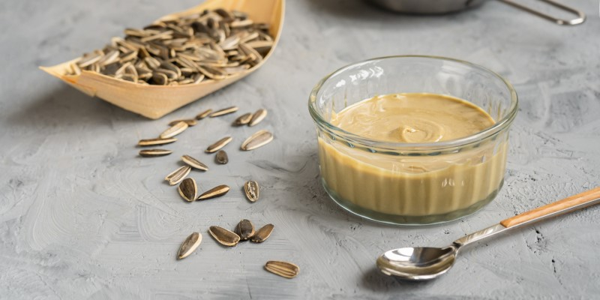
Why Sunflower Seed Butter Is A Nut-Free Favorite
The rise in food allergies, particularly nut allergies, has made sunflower seed butter a staple in many households. Here are a few reasons it has gained such popularity, especially among individuals and families managing food sensitivities.
Safe For People With Nut Allergies
Sunflower seed butter is a nut-free alternative, making it safe for people with nut allergies. It's popular in schools with strict no-nut policies, offering a nutritious, allergy-friendly lunch option. It provides a taste and texture similar to peanut or almond butter without the risk of allergic reactions.
Versatile And Widely Available
Sunflower seed butter can be easily found in grocery and health food stores and is available in various options, such as organic, unsweetened, or flavoured varieties. With choices including low-sugar and added ingredients like chia or flax, it caters to different dietary preferences, making it a versatile option for consumers.
Environmental Benefits
Sunflower seed butter appeals to eco-conscious consumers as sunflowers are a sustainable crop requiring fewer resources. They thrive in various climates with less environmental impact than nuts like almonds, which need significant water, making sunflowers an eco-friendly choice.
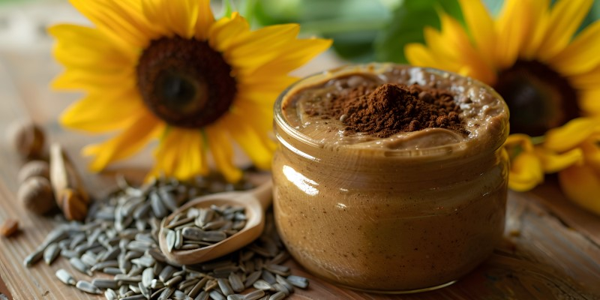
How To Use Sunflower Seed Butter In Everyday Recipes
Sunflower seed butter is incredibly versatile, making it a great addition to many recipes, from breakfasts and snacks to desserts and savoury dishes. Here are a few ways to incorporate this nut-free spread into your daily meals.
Spread On Toast Or Bread
A classic way to enjoy sunflower seed butter is to spread it on toast or bread. You can pair it with honey, banana slices, or even a sprinkle of cinnamon for added flavour. Its rich, creamy texture makes it an ideal sweet or savoury topping base.
Stirred Into Smoothies
Add a spoonful of sunflower seed butter to your morning smoothie for an easy protein boost. It pairs well with fruits like bananas, berries, or even greens, giving your smoothie a nutty flavour while adding a creamy texture. This is a perfect option for those following plant-based diets, as it helps increase the protein content of your drink.
Used In Baking
Sunflower seed butter can also be used in baking as a peanut or other nut butter substitute. Whether making cookies, brownies, or energy bars, it adds a unique flavour while keeping the recipe nut-free. It works well in no-bake recipes, adding richness and moisture to desserts without adding oils or fats.
Salad Dressings And Sauces
Beyond sweet dishes, sunflower seed butter can also be used in savoury applications, such as salad dressings and sauces. Try blending it with soy sauce, vinegar, garlic, and honey for a creamy, nut-free dressing that perfectly pairs with crunchy vegetables or grilled meats. It can also be used in sauces for noodles or stir-fries, adding depth of flavour and a rich, creamy consistency.
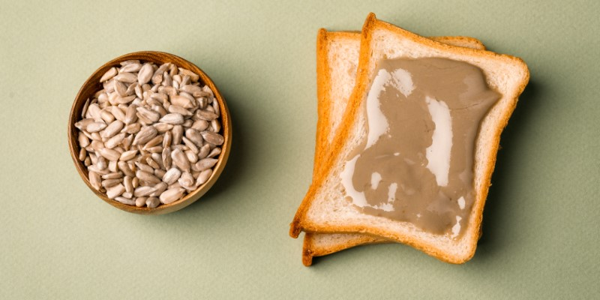
Conclusion
Sunflower seed butter is much more than just a peanut butter substitute. With its nut-free status, rich nutritional profile, and versatility in the kitchen, it has earned its place as a beloved spread in homes around the world. Whether dealing with allergies or looking for a tasty and nutritious alternative to traditional spreads, sunflower seed butter is a great option. Its capacity to shape seamlessly into each candy and savoury recipe makes it a pantry staple that caters to diverse tastes and nutritional preferences.



